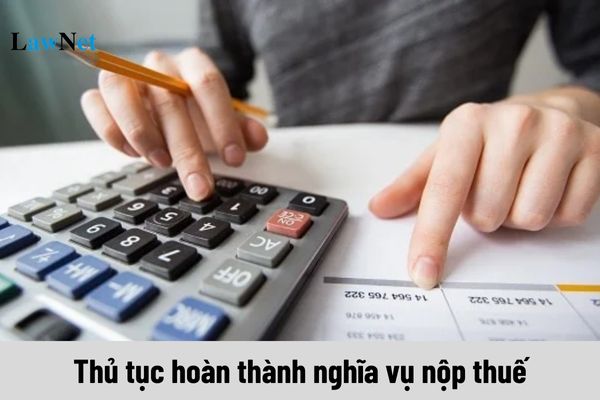What are the procedures for tax liability fulfillment upon dissolution of an enterprise in Vietnam?
What is the definition of tax liability fulfillment in Vietnam?
According to Clause 12, Article 3 of the Tax Administration Law 2019, “Tax liability fulfillment” means full payment of tax liabilities, late payment interest, penalties of tax violations and other amounts payable to the state budget.
What are the procedures for tax liability fulfillment upon dissolution of an enterprise in Vietnam?
Under Article 67 of the Tax Administration Law 2019, the regulations are as follows:
Fulfillment of tax liability upon dissolution, bankruptcy and shutdown
1. Tax liability shall be fulfilled upon enterprise dissolution in accordance with regulations of law on enterprises, credit institutions, insurance business and relevant laws.
2. Tax liability shall be fulfilled upon bankruptcy in accordance with bankruptcy laws.
3. When a enterprise shuts down or leaves the registered location before it fulfills its tax liability, the outstanding tax shall be paid by the owner of the sole proprietorship, single-member limited liability company, shareholders, partners or general partners (depending on the type of business entity).
4. When a household business or individual businesses ceases business operation before its tax liability is fulfilled, the outstanding tax shall be paid by its owner.
5. In the cases where a branch or dependent unit of a taxpayer shuts down without fully paying its tax and other amounts payable to state budget, the taxpayer shall incur such debts.
Thus, tax liability shall be fulfilled upon enterprise dissolution in accordance with regulations of law on enterprises, credit institutions, insurance business and relevant laws.

What are the procedures for tax liability fulfillment upon dissolution of an enterprise in Vietnam? (Image from the Internet)
How is the tax payment date determined?
Under Article 58 of the Tax Administration Law 2019, the regulations for determining the tax payment date are as follows:
Determination of tax payment date
1. In case of non-cash payment of tax, the tax payment date is the date on which the State Treasury, commercial bank, credit institution or service provider extracts the tax from the taxpayer’s account or the authorized person’s account and written on the tax payment document.
2. In case of payment of tax in cash, the tax payment date is the date on which the State Treasury, tax authority or authorized collecting organization issues the tax payment document.
Thus, the tax payment date is determined through non-cash payment and payment in cash as follows:
- In case of non-cash payment of tax, the tax payment date is the date on which the State Treasury, commercial bank, credit institution or service provider extracts the tax from the taxpayer’s account or the authorized person’s account and written on the tax payment document.
- In case of payment of tax in cash, the tax payment date is the date on which the State Treasury, tax authority or authorized collecting organization issues the tax payment document.
What are the cases of tax deferral in Vietnam?
Under Article 62 of the Tax Administration Law 2019, regulations regarding the tax deferral are as follows:
Tax deferral
1. A taxpayer may apply for tax deferral in one of the following cases:
a) The taxpayer’s business suffers damage due to a force majeure events specified in Clause 27 Article 3 of this Law;
b) The taxpayer has to relocate the business location as requested by a competent authority and such relocation affects the business performance.
2. A taxpayer eligible for tax deferral mentioned in Clause 1 of this Article may have part or all of the tax deferred.
3. Tax may be deferred:
a) For up to 02 years in the cases specified in Point a Clause 1 of this Article;
b) For up to 01 year in the cases specified in Point b Clause 1 of this Article.
4. The taxpayer will not incur fines and late payment interest on the outstanding tax during the deferral period.
5. In consideration of the application for tax deferral, the head of the tax authority shall decide the amount of tax deferred and the deferral period.
Thus, under the above regulations, a taxpayer may apply for tax deferral in one of the following cases:
- The taxpayer’s business suffers damage due to force majeure events specified in Clause 27 Article 3 of Tax Administration Law 2019;
- The taxpayer has to relocate the business location as requested by a competent authority and such relocation affects the business performance.
Note: The taxpayer will not incur fines and late payment interest on the outstanding tax during the deferral period.

